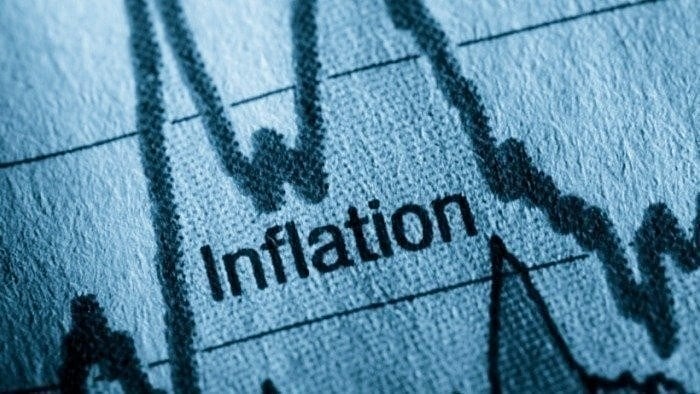
Representative image showing an illustration of inflation graph.
Credit: iStock Photo
New Delhi: The annual wholesale price inflation declined marginally to 2.31% in January from 2.37% recorded in the previous month largely due to softer increase in food prices, as per data released by the Ministry of Commerce and Industry on Friday.
The price rise in wholesale markets during the month of January remained softer despite a low base. The wholesale price index (WPI) based inflation stood at 0.33% in January 2024.
The wholesale food inflation eased to 5.88% in January from 8.47% recorded in the previous month. There was a sharp decline in vegetable inflation. It fell from 28.65% in December to 8.35% in January.
Within vegetables, a decline in tomato prices (18.9%) helped in bringing relief despite heightened inflation levels for onion (28.3%, at a three-month high) and potato (74.3%) in the same period.
However, the trend was not broad-based as inflation in core, non-food articles (others) and energy & minerals recorded an increase in January 2025. The non-food articles firmed up further to a two-year high of 3.0% in January 2025, while the prices for energy & minerals were up 0.6% year-on-year after a gap of four months.
Wholesale core inflation was at a six-month high of 1.0% in January 2025 largely due to a rise in chemicals inflation. The chemical products inflation increased to a 23-month high of 1.0% in the same period. However, core inflation continues to be low on account of a sustained decline in metal prices.
“Rising temperatures have added to the uncertainty to the global economic environment which is at the cusp of new tariff wars,” said said Paras Jasrai, Senior Economic Analyst at India Ratings and Research.
January 2025 recorded higher than normal temperatures, if the prevailing temperature in February (which has been higher than normal) continues till March 2025 then it will have an adverse impact on rabi crop production which can slowdown the easing of food inflation, Jasrai added.
On the external front, while Brent crude oil prices remain subdued, inflation in industrial metals entered positive territory in January after six months of deflation.
“Strong price momentum in certain base metals has contributed to the growth of industrial metal prices. Going ahead, it is crucial to monitor geopolitical developments and global trade uncertainties closely, as these could significantly influence global commodity markets and
supply chains,” said Rajani Sinha, Chief Economist, CareEdge Ratings.